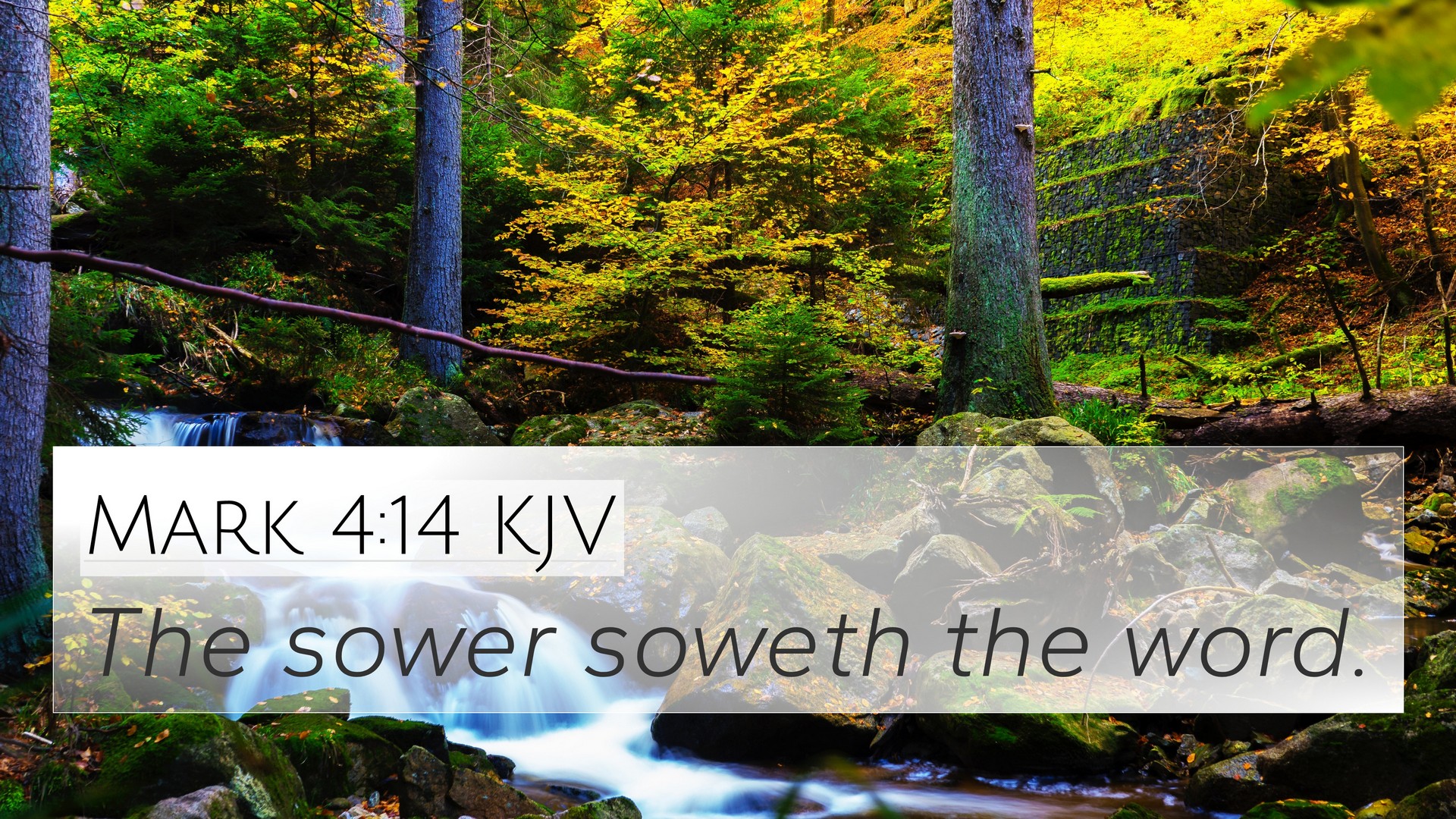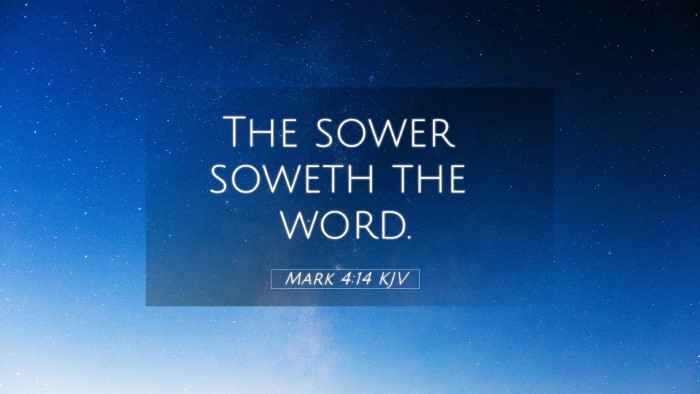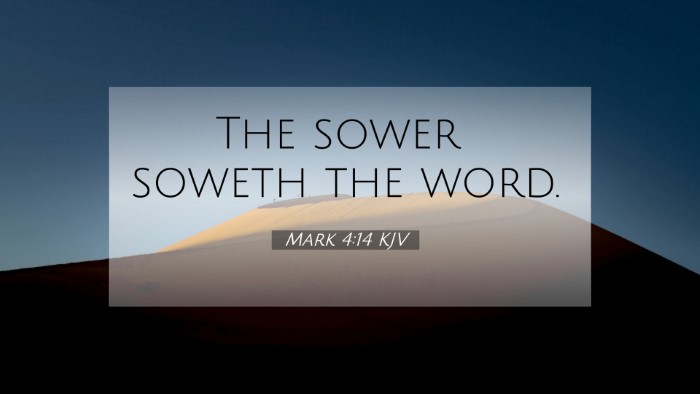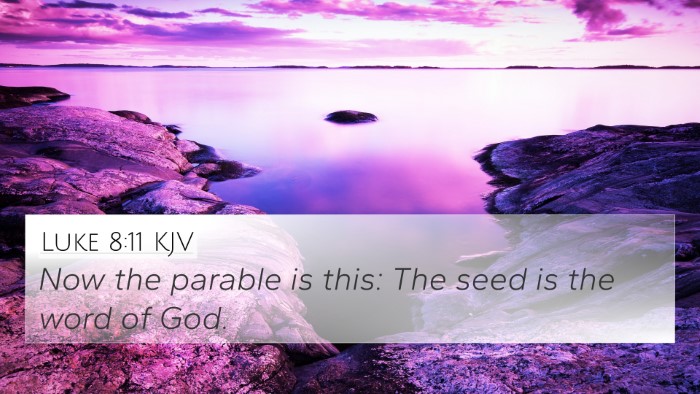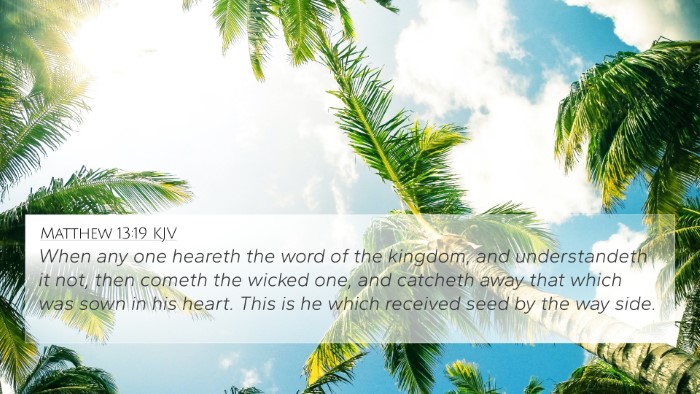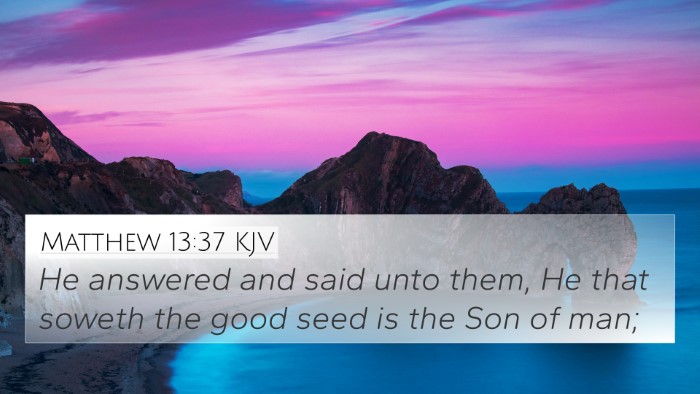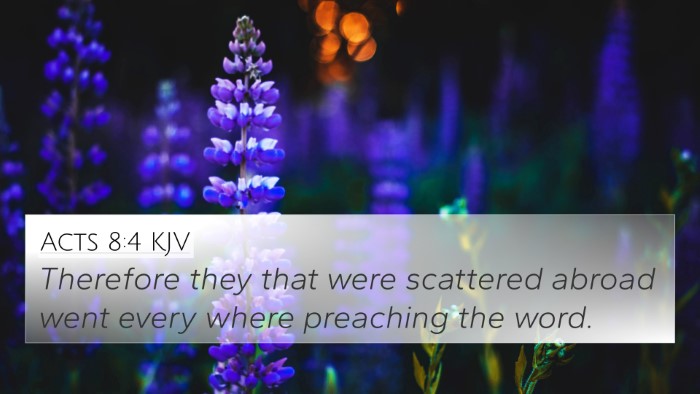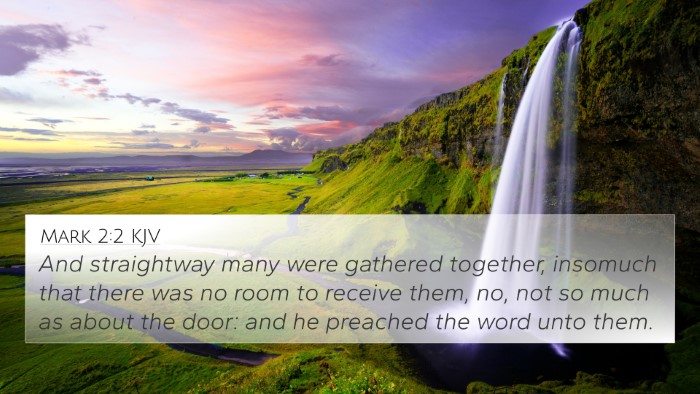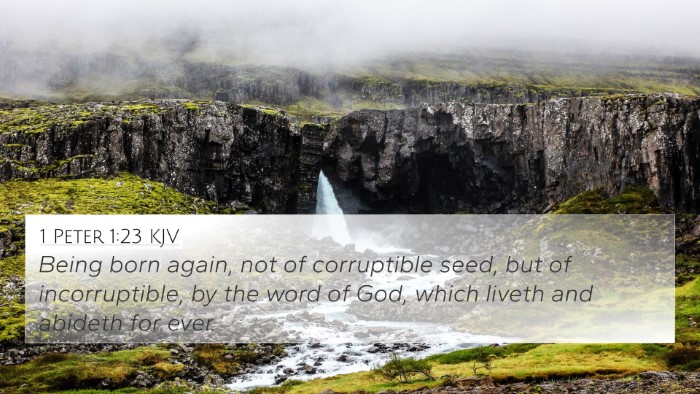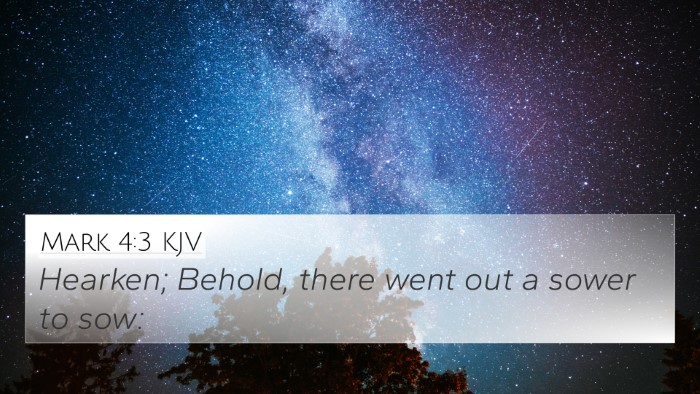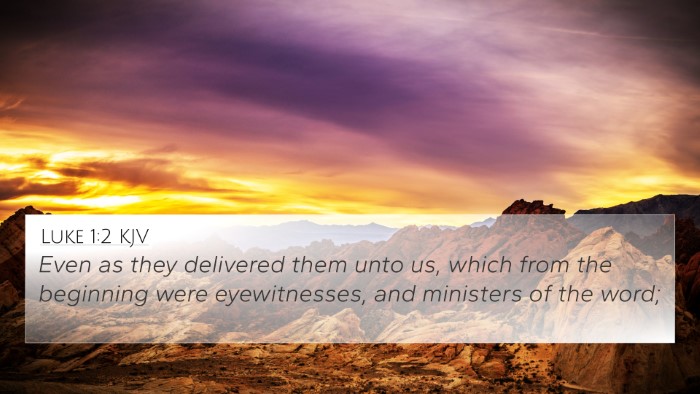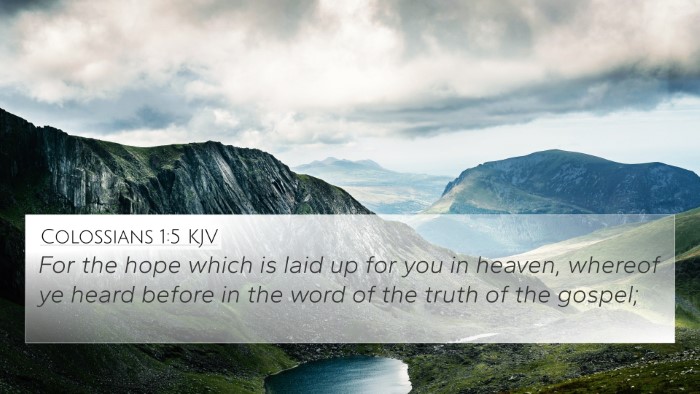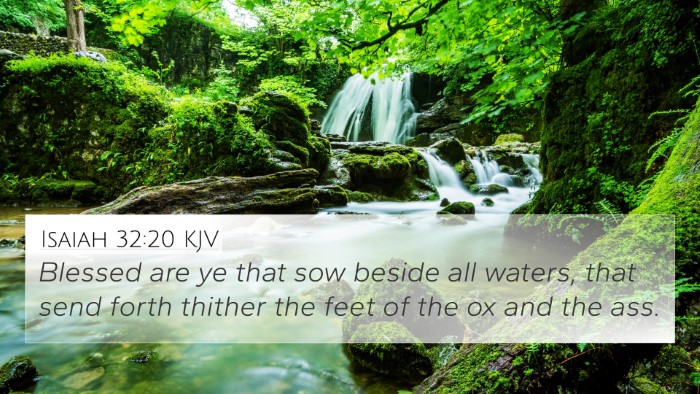Understanding Mark 4:14
Mark 4:14 (KJV): “The sower soweth the word.”
This verse is central to the Parable of the Sower, where Jesus uses agricultural imagery to convey spiritual truths. Below we summarize insights from notable public domain commentaries, reflecting on its meaning and cross-references.
Commentary Insights
Matthew Henry's Commentary
Matthew Henry emphasizes that the 'sower' represents Jesus and His followers who spread the Gospel. The 'word' refers to the divine message of salvation which is shared through preaching. This analogy illustrates the varied responses to the Gospel among different people and highlights the importance of receiving the message with a sincere heart.
Albert Barnes' Notes
Albert Barnes expounds on the idea that the sowing of the word signifies the initial act of evangelism. He urges readers to consider the conditions under which the seed (the word) is sown, pointing out that the effectiveness of this sowing is contingent on the readiness of the hearts that receive it. He aligns this parable with the necessity of personal faith and preparation to embrace the teachings of Christ.
Adam Clarke's Commentary
Adam Clarke further analyzes the cultural context of farming in the time of Jesus, suggesting that the act of sowing was a common and relatable task for His audience. He draws an important distinction between the seed itself and the soil's condition, inferring that the Word of God is perfect, while the reception of it varies among believers based on their spiritual state.
Bible Verse Cross-References
Mark 4:14 connects with several other verses, enhancing our understanding of its message. Here are some significant cross-references:
- Matthew 13:19: “When anyone hears the word of the kingdom, and understands it not, then cometh the wicked one, and catcheth away that which was sown in his heart.”
- Luke 8:11: “Now the parable is this: The seed is the word of God.”
- 1 Corinthians 3:6: “I have planted, Apollos watered; but God gave the increase.”
- Romans 10:17: “So then faith cometh by hearing, and hearing by the word of God.”
- Isaiah 55:10-11: “For as the rain cometh down, and the snow from heaven, and returneth not thither, but watereth the earth, and maketh it bring forth and bud, that it may give seed to the sower, and bread to the eater; So shall my word be that goeth forth out of my mouth: it shall not return unto me void.”
- John 15:16: “Ye have not chosen me, but I have chosen you, and ordained you, that ye should go and bring forth fruit.”
- James 1:21: “Wherefore lay apart all filthiness and superfluity of naughtiness, and receive with meekness the engrafted word, which is able to save your souls.”
Thematic Connections
Mark 4:14 and its cross-references encourage deeper study into the use of parables and the transmission of God's word. They illustrate the various conditions affecting the reception of God’s message and challenge interpreters to examine their own spiritual receptiveness and the fruits of faith in their lives. The thematic connections between these verses highlight not only the method of spreading the Gospel but also the divine responsibility of growth that lies with God alone.
How to Use Bible Cross-References
Utilizing a Bible concordance or a Bible cross-reference guide can significantly enhance your understanding of scriptural texts. Here are some tips for effective cross-referencing:
- Identify Key Themes: Look for recurring themes or concepts in related verses.
- Compare Gospel Accounts: Analyze parallels among the synoptic Gospels (Matthew, Mark, Luke) to gain a fuller picture of Jesus’ teachings.
- Explore Old and New Testament Links: Consider how New Testament teachings relate to prophecies and narratives in the Old Testament.
- Contextual Reading: Always read verses in their immediate context to avoid misinterpretation.
- Use Bible Study Tools: Leverage digital resources or commentaries for additional insights.
Conclusion
Mark 4:14 serves as a foundational verse in understanding the nature of God's Word and its sowing. With rich insights from traditional commentaries and meaningful cross-references, this verse encourages believers to examine their responses and commitments to the teachings of Christ. Engaging in comparative analysis among related scriptures provides a holistic understanding of Biblical themes, ultimately enriching personal faith and understanding.
By utilizing these tools and connecting with the broader narrative of scripture, individuals can deepen their engagement with the Bible's teachings and its transformative power in their lives.
